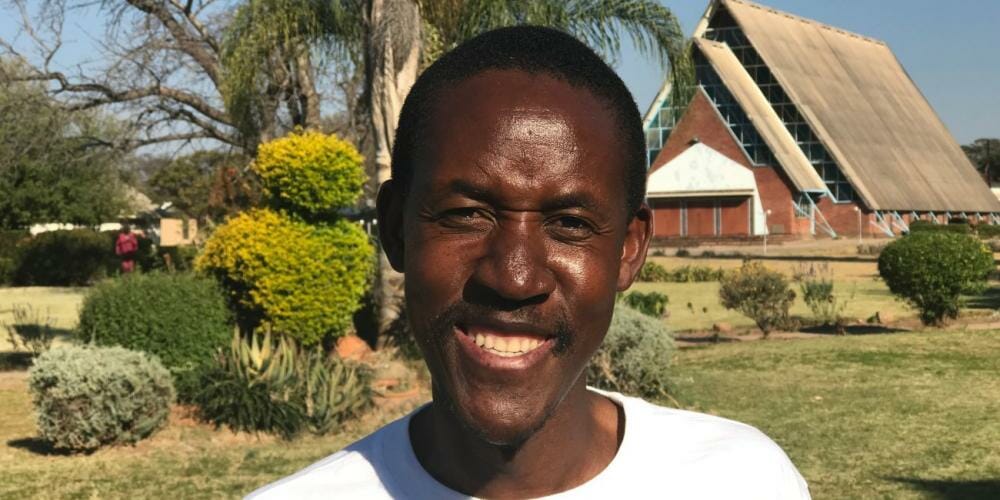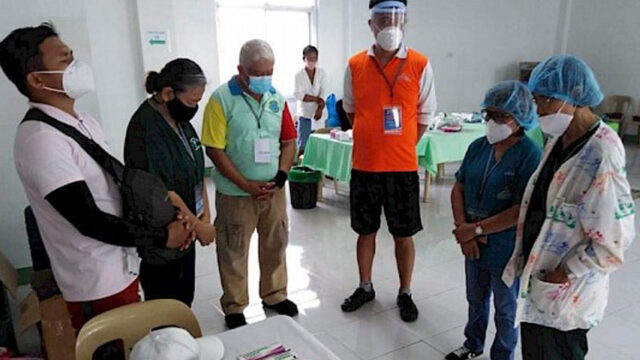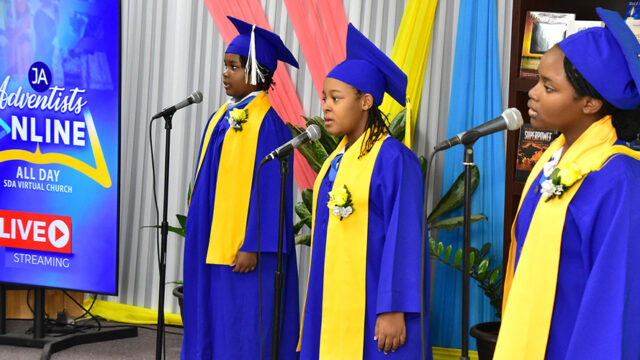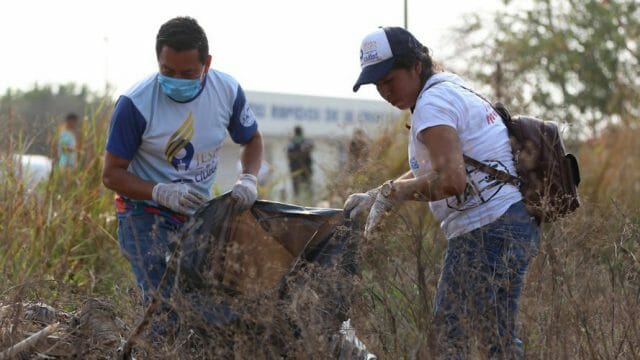Zimbabwean student should have died in a tragedy before Christmas.

I shouldn’t be alive after a road tragedy just two days before Christmas in Zimbabwe. This is my story.
Dec. 23, 2015
5 a.m.
It is still dark as I drive off the campus of Solusi University, where I will move with my wife, Fortunate, and two young children in just a few months. The Seventh-day Adventist Church granted me a broad scholarship to study to become a pastor at Solusi three months ago. A long day of driving awaits me. I will pick up my wife in Zimbabwe’s capital, Harare, where she attended a wedding, and then drive to Bindura, where we’ll spend the night at the home of a pastor. The next day, by Christmas Eve, we will join our 8-year-old boy and 4-year-old girl in Kwekwe, where they are staying with my wife’s parents.
2 p.m.
After a drive of 300 miles (490 kilometers), I arrive in Harare and reunite with my wife, Fortunate. We spend some time in Harare.
5 p.m.
We head for Bindura, about an hour’s drive north of Harare. As we drive, we see many people standing along the road, arms raised in hope of flagging down a ride. With the pre-Christmas rush, the buses are full, and people are anxious to find a way home for the holidays. We recognize a woman at the roadside and stop to give her a ride. As she gets into the car, a man and a woman beg us to take them, too. We don’t know them, but we see their worried faces and agree. The three passengers get into the back of the car, and the five of us resume the trip.
6 p.m.
The sun is beginning to set, and we are about 12 miles (20 kilometers) from our stop for the night. Everything goes black.
The next thing I know, I sense that my seatbelt is very, very tight. I can’t move. Everything is dark. I hear some sounds, faint voices from a distance.
I realize that something terrible has happened.
I feel the car being shaken, but I don’t know what is happening.
The next thing I hear is the siren of an ambulance or a police car.
Moments later, I feel myself being lifted out of the car and carried to an ambulance. A nurse asks me whom she should call.
“What happened?” I ask.
“An accident,” she says, without offering any details.
I give her the names of two people to call — the pastor whom I was planning to stay with, and a church elder.
I am alone in the ambulance. I wonder about my wife. Bindura has two hospitals — a general hospital and a private hospital. I ask the nurse to take me to a private hospital.
At the hospital, someone calls the district pastor. He had been expecting us by 7 p.m.
He rushes to the hospital and sees that I am in a bad state. He says, “We’re going to take you to the hospital back in Harare.”
The pastor tries to call the chief financial officer of the local church conference. No answer. He calls the chief financial officer of another conference. They arrange for me to be transferred to Harare.
The pastor asks the nurse about Fortunate, and we learn that a pickup truck driving behind us took her and two of our passengers to the general hospital in Bindura. The pastor asks that she be brought to the private hospital. Doctors initially say she only suffered minor bruises, but then she collapses onto the floor. A scan finds serious internal bleeding.
Two ambulances are summoned, and we are whisked off to Harare. The last thing I remember is being carried out of the hospital.
Dec. 24 and 25, 2015
Fortunate and I each undergo three operations. My wife’s life-threatening injury is a small intestine ruptured by her seatbelt. Doctors remove 16 inches (40 centimeters) of her small intestine. Her left palm and left foot are also badly injured, and doctors insert metal pins.
With me, doctors insert metal plates in my left forearm and metal pins in my right leg. The most serious surgery is on my spine, which is dislocated. The doctor has to operate through the front of my neck to insert an implant on my fourth and fifth cervical vertebra.
The operating doctor later shows me an X-ray of my vertebra and says, “You could take this to any doctor in the world and he will tell you what I am telling you right now: You are a dead man. This X-ray tells us that you are dead or paralyzed from the shoulders down.”
Dec. 31, 2015
My wife and I are moved from the hospital’s intensive care unit to the general ward. No one is telling us anything about the accident. We don’t know whether our car overturned. We ask about the female friend whom we picked up along the road, and we’re told that she is fine.
Jan. 6, 2016
The doctors say we are free to go home and begin physiotherapy. A crowd of people come to the hospital for our release. Among them is North Zimbabwe Conference president Obed Mudzengi, three pastors, my brother and sister, and Fortunate’s brother.
For the first time we hear that five people died in the accident. Three people died on the spot, including our female friend in the backseat. It was a head-on collision. The vehicle that hit us had three occupants. Two of them, the driver and an old woman seated with him in the front, had died instantly. The man in the back was taken to the hospital, and we don’t know to this day whether he survived.
The two other passengers in our car were taken to the hospital and died the following day.
The news leaves Fortunate and me shocked. The doctors keep us at the hospital for another 2 ½ hours to monitor our condition.
Finally, we drive to the Harare home of my brother-in-law, Hopewell Mandina, a pastor, to start intensive physiotherapy sessions. We can’t wash ourselves or use the restroom on our own. We will have to use wheelchairs for the next six weeks as we relearn how to walk.
March 2016
We go to the police station to assist with the police investigation into the accident.
The police asked me to give a statement. They asked, “Were you drunk?”
“I don’t drink,” I said.
“Were you speeding?”
“No.”
“What happened?”
“I don’t know.”
It was like God put a blackout on me.
The police say the other car was driven by a young man who was drunk and speeding. We see the two badly wrecked vehicles. They are identical: both red Honda Fits. My speedometer is stopped at 55 miles per hour (90 kilometers per hour), and his speedometer reads 105 miles per hour (170 kilometers per hour).
We are told that the other driver overtook a truck and then tried to pass a van when he realized that our car was approaching. The collision occurred in my lane.
April 2016
I wasn’t expecting to study at Solusi because of my injuries. But by the end of April, I realize that I will be able to start classes as previously planned in May. I move with my wife and children to Solusi.
Epilogue
Many miracles happened that I don’t understand.
I don’t understand how my wife and I survived a head-on collision in the front seat but the three passengers in the back didn’t make it.
I don’t understand why I am not paralyzed. When I started rehabilitation exercises, the physiotherapist asked, “Are you a praying man?”
“Yes, why?” I said.
“The X-ray that I’m holding here shows you are supposed to be paralyzed from the neck down,” he said. “Normally, a person with an X-ray like this would be dead. I’m going to be very careful with you. I’m afraid.”
I don’t understand the quick arrival of the ambulance to the accident scene. The nurse, who works at a gold mine in the area, later told us that we were driving ahead of her and she saw the car with the drunk driver fly past. The gold mine’s manager was driving in a pickup truck directly behind our car, and he saw the accident. He immediately called the nurse on his cell phone, learned that she was near the gold mine, and asked her to return with the mine’s ambulance.
The manager drove my wife and the other survivors to the general hospital in his pickup truck.
I don’t understand how I received a church scholarship to study at Solusi just three months before the accident. Without the scholarship, my wife and I would not have received medical assistance, and we might have died. Our hospital bills reached U.S.$36,000, an enormous sum for Zimbabwe.
I don’t understand why the only orthopedic surgeon qualified to operate on my neck in Zimbabwe was available on the day of my emergency surgery. He had booked an airplane flight to France to spend the Christmas holidays with his family. He operated on me in the morning and caught his flight in the afternoon.
I ask God, “Why did You spare us? We should have perished right on the spot.”
I have two possible answers. Perhaps my wife and I were not prepared spiritually to die, and God has given us another chance to be ready for the resurrection. Or maybe God spared us because we still have work to do in His vineyard.
My prayer life has changed. I pray more often, and I ask God to give us the strength to be good all the time. I ask God to work on whatever weaknesses that I might have so I am alright with Him if I should die at any moment.
I also ask God to help me not to lose the fire to do His bidding. I pray, “Whatever You want me to do in Your work, give me the strength and the zeal to do it.”
I sometimes make mistakes, but I always go to God and say, “I’m sorry that I’ve done this. I cannot manage on my own. Give me strength.”
I pray that my relationship with God is good all the time. I pray, “Let me do what You want me to do. Help me not to lose fire.”
I will graduate in 2019.
I don’t know what God did on Dec. 23, 2015. But I am still here.
This article first appeared in on the Adventist Mission website.








